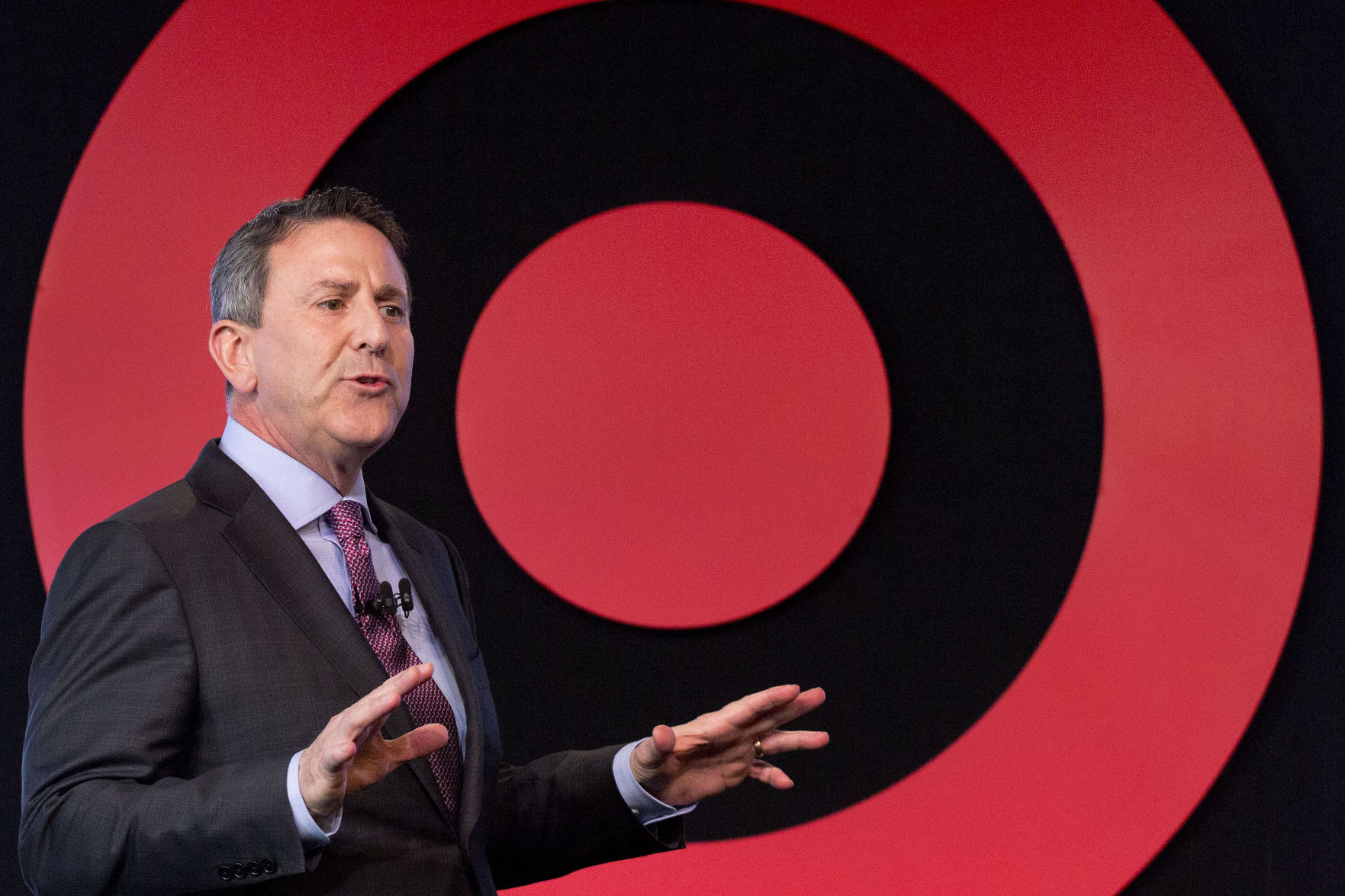NEW YORK (AP) — Target sees its new smaller stores in mainly urban areas as a symbol of its future, hoping that shoppers will step away from online buying for trips to stores tailored to the neighborhood. The two-level store
NEW YORK (AP) — Target sees its new smaller stores in mainly urban areas as a symbol of its future, hoping that shoppers will step away from online buying for trips to stores tailored to the neighborhood.
The two-level store in Manhattan’s Herald Square, not far from the Macy’s flagship, is about one-third the size of Target’s average store. It’ll offer same-day delivery, more self-serve checkouts than usual, and a small grocery area near an entrance so shoppers can quickly grab an item or two. It’ll also be the first to sell Target-branded merchandise like mugs and T-shirts emblazoned with the Bullseye mascot.
Target is spending $7 billion over three years to remodel old stores, open small ones in cities and college towns and offer faster delivery for online orders. The Herald Square store is among 12 mostly small-format stores opening this week in urban markets like Chicago, Los Angeles and Philadelphia. That will bring the number to more than 50 small-format stores, with plans to operate more than 130 by the end of 2019.
While all retailers need to worry about online growth and the expansion of Amazon, Target CEO Brian Cornell said Thursday that with the new urban stores, Target is seeing it can attract new customers. “Our stores are the drivers” of digital growth, he said.
Cornell says sales per square foot at small-format stores in urban markets and college towns are twice that of regular stores. So that would make it about $500 to $600 per square feet. He added that the remodeled stores have been well-received, and the company is accelerating plans to remodel 1,000 of its 1,800 stores by 2020. It had originally planned to remodel 600 by 2019.
Target had started testing same-day delivery at a store in Manhattan this past summer, letting shoppers have purchases made in the store delivered to their homes for a fee. Cornell says shoppers are spending six times more than the average shopping basket at that store when they use the same-day service. It plans to start same-day delivery service at two other stores in Brooklyn on Friday, and Cornell says he envisions Target expanding same-day service to other urban markets.
As it works to freshen up its stores, Target is also adding more clothing and furniture brands, and said that its children’s line Cat & Jack brought in $2 billion in sales since its launch a year ago. The company has raised its minimum hourly wage for its workers to $11 and will increase it to $15 by the end of 2020, which it says will help it recruit better workers and make shopping at Target a better experience.
Target is also testing store-curb pickup for online grocery customers at 50 stores in the Minneapolis area. In comparison, Walmart has 1,000 stores that offer curbside pickup for online grocery shoppers and plans to double that figure next year.
Cornell said the company’s next-day delivery of essentials like detergent will be expanded nationwide by the end of next year. It had been testing the service in Dallas, Texas, Minneapolis, and Denver, then started expanding it to Atlanta, Chicago, Los Angeles, New York, Philadelphia, San Francisco, St. Louis, and Washington, D.C./Baltimore areas. The service, a rival to Amazon Pantry, allows online shoppers to fill a box that weighs no more than 45 pounds with essentials like toilet paper and peanut butter for a rate of $4.99.
Cornell told reporters the goal is to fulfill orders within 48 hours however the shopper chooses to buy.
———
The version corrects in the third paragraph that Target plans to operate, not open, 130 small-format stores by the end of 2019.


